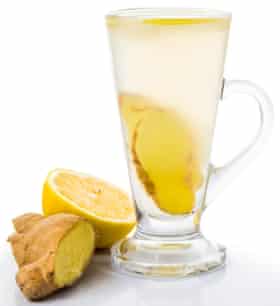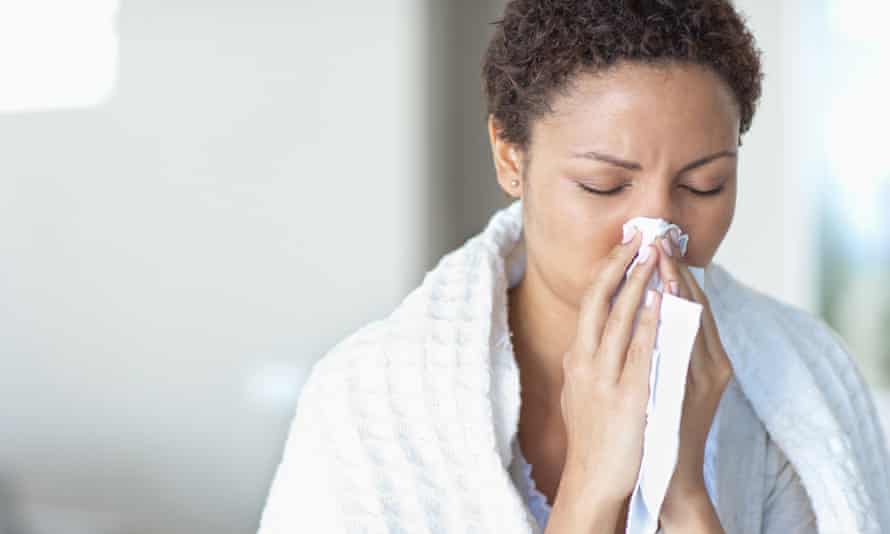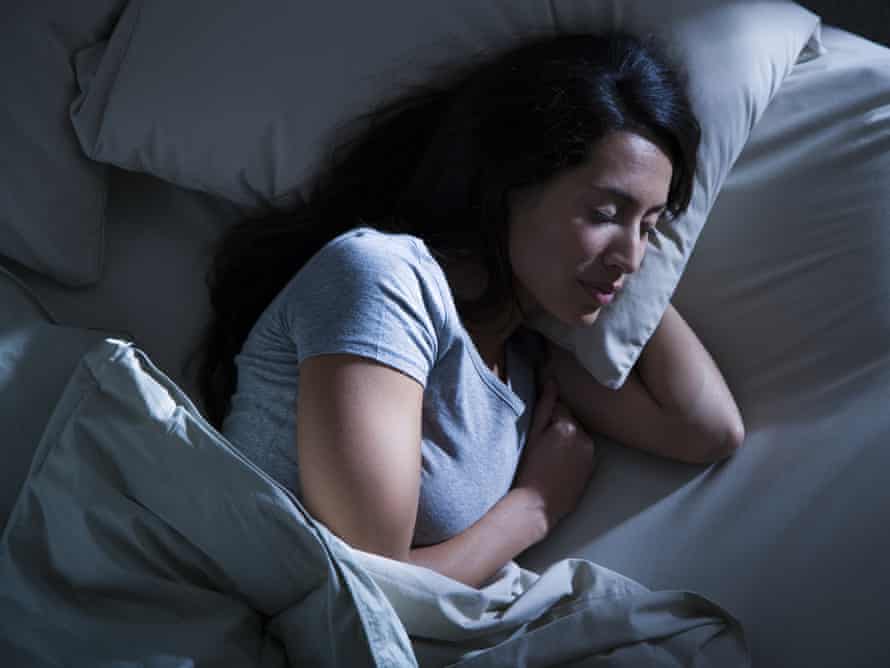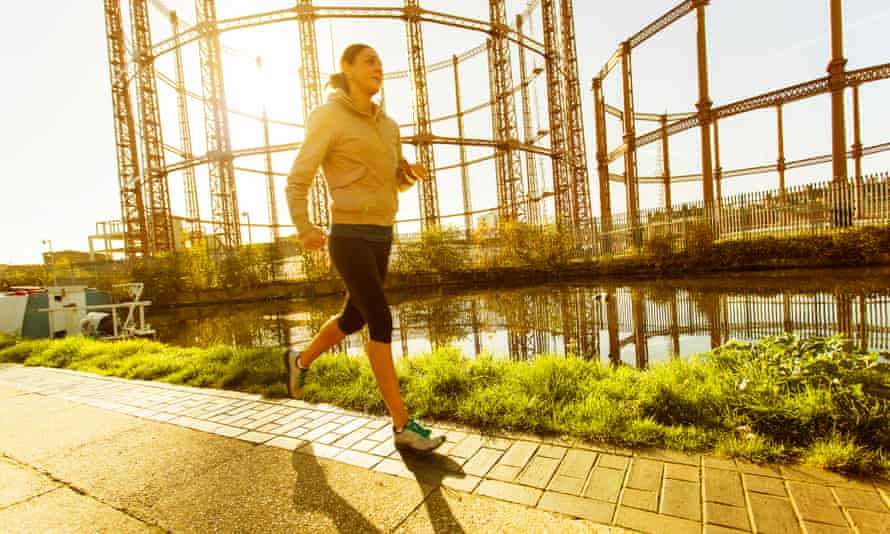How to Never Be Sick Again
Due east very now and and so 1 pops upwards at work, down the pub, in the park, outside the school gate, or in your own family'southward mythology. The person who claims never to go sick. Colds castor by them without leaving so much as a sniffle. They laugh in the flushed confront of flu, spray hand sanitiser in the rheumy eyes of infection, and never take a day off piece of work. They appear to be superhuman, with the kind of kickass immune systems the rest of us mere ailing mortals can just dream well-nigh as we deliquesce some other ane,000mg vitamin C tablet and promise for the all-time. What are their secrets? Can we become more like them? Exercise they even be?
"I hardly ever go a common cold, issues or infection," says Lore Lucas, a 97-year-old Jewish refugee and Holocaust survivor who has lived in Glasgow since 1946. "I never drank or smoked, I slumber well and I like a niggling rest during the mean solar day, preferably in bed, or rather on the bed … simply shoes off." What almost her diet? "I have been known to have a nifty dislike for cheese," she replies, "and I really practice not similar the Scottish specialities mince, haggis, or porridge."
During her professional person life, first equally a maternity nurse in Geneva, where she lived afterwards fleeing Nazi Germany in March, 1938, and then every bit an office secretarial assistant, Lucas never had a day off due to sickness. Did she get ill after the war? "Past that time, I was fully aware I would never see my parents, sister, grandparents, ever again," she says. "Very traumatic … just matters turned much to my favour when I got married in 1946." Lucas, who has one son and granddaughter and has been a widow for thirty years, puts her infrequent health down to a combination of good genes and a proficient life. Oh, and a good game of bridge. "To keep active, I play a lot," she confesses over email as "my hearing aids practise not work too well on the phone". "I am quite addicted, I play in diverse clubs, and bask a social game at home."

On average, each of u.s.a. will get around 200 colds in a lifetime. Though some appear to suffer more than others, at that place is no evidence or, indeed, inquiry on why, or if, that is really the instance. "It'due south pretty much hearsay and self-reporting," says Dr Natalie Riddell, a lecturer in immunology at the Academy of Surrey and spokesperson for the British Order for Immunology. "I demand more than evidence before I can believe these people really exist." Though there is no scientifically proven link between lifestyle and enhanced allowed function, the allowed-boosting industry and our unshakeable belief in it continues to flourish similar flu during fresher's week. Nutritional supplements alone, thought to be i of the world'south fastest-growing businesses, are predicted to be worth $60bn (£48bn) past 2021. Equally the American author Eula Biss notes in her excellent book about vaccination, On Amnesty, "edifice, boosting, and supplementing one's personal allowed arrangement is a kind of cultural obsession of the moment".
Meanwhile, for doctors and immunologists, the notion of superhuman health remains at best unproven and at worst a fiction. This is because of the highly private and complex nature of our immune systems, which are almost every bit specific to each of us as our fingerprints. "Some of us inherit a set of allowed arrangement genes that are particularly good at dealing with 1 particular virus," explains Daniel Davis, professor of immunology at the University of Manchester and writer of The Compatibility Factor, which explores how immune system genes shape our biological science. "But that is not to say that you or I would take a amend or worse immune system. All it means is that you lot would deal with a particular flu virus meliorate than me. There is an inherent multifariousness in how our allowed systems respond to different diseases and that multifariousness is essential to how our species survives illness."

Much of this diversity comes down to our inherited genetic makeup. "The greatest diversity in all of the 25,000 genes that make up the human genome is in our few immune system genes," Davis explains. "That ways that the genes that vary most between us all are the ones that influence the immune system."
This unparalleled diversity makes generalisations about stronger or weaker immune systems meaningless. It also throws into question the benefits of all the products out at that place claiming to boost our immunity; antioxidants, vitamin C, hot lemon and ginger tea, garlic, echinacea, or wheatgrass. Do any of them work?
"The bottom line is that we simply don't know," Davis says. Or, equally GP and Guardian contributor Ann Robinson puts it: "Keep your scepticism wrapped effectually y'all similar a cloak."
So why practice some people simply seem to be meliorate at fighting infection than others? "Maybe people at the top end have been primed through early exposure to bugs, fully vaccinated, and and then on," Robinson says. "Each person is wired to be slightly meliorate at fighting off some illnesses and slightly worse at fighting off others," is how Davis explains information technology. Both also point to growing testify that our gut microbiome - the range and quantity of microbes in our guts - impacts the allowed system. So at that place is a link between diet and immunity? "It's a hot topic," Davis says, advisedly. "Although gut microbiome directly affects the immune organisation, precisely how isn't notwithstanding articulate."
For 55-year-old builder Jenny Hunter, who "very, very rarely gets sick", lifestyle and attitude play a part. "My mum didn't tolerate illness," she recalls of her childhood, the first five years of which were spent in Australia. "If I idea I was ill she would ship me to schoolhouse and say I'd feel amend. She was right … brutal, only correct." What does she do to maintain her wellness? "My grandfather used to have a common cold bath every morning just I don't have any secrets or perversions," she laughs. "I have a good diet, keep busy, and I practice yoga, pilates and running every week. And I do think happiness plays a part. My default setting is that life is expert."
For Riddell, lifestyle plays a significant role in the operation of our allowed response. "The immune system is not solely governed by genetics," she insists. "One of my inquiry interests looks at how stress tin can negatively touch on allowed role. We have seen a dampening of immune responses among, say care-givers, versus the non-care-giving customs."

Thomas Walters is a writer and retired bookish who refuses to tell me his age but concedes that he is "probably in his last decade". He has never seen himself every bit a person who gets ill – in fact, the just disease he tin can recall having equally an developed is shingles, "which passed amazingly quickly". His lifestyle, like those of all the people I speak to who claim to never get ill, is balanced, moderate, social, and suffused with a positive outlook. "I drink a reasonable corporeality – i glass of wine a day and sometimes whisky," he tells me. "I've e'er walked as often as possible. I did smoke for a brief period … Gauloises, because I liked France and the blueish packets, but I gave up easily. I sleep extremely well, bask my dreams, and have very few nightmares. I tend to work until 10pm and have simply finished a book about a late-Victorian builder. I would say my encephalon is as good as it's always been."
Does he think his good health might be inherited? "I'm iii-quarters Welsh peasant and one-quarter French peasant," he notes. "Tough people. Plenty of my relatives checked out in their 90s, although my parents didn't live to a bang-up age. My male parent had a very stressful career and my mother had cancer and died in her mid-60s. I've never had that kind of career stress." Later, Walters emails me with a alarm: "Remember, even the healthiest of whales has barnacles growing on information technology, and bears the scars from scraping against undersea rocks. I recall a Hindu sage who in one case said: 'The torso itself is a affliction.'"

Part of our fascination with the idea of superhuman resistance to illness is the way we view wellness itself. Not as "a transient land that nosotros may be exiled from without warning", writes Biss in On Immunity, but as an identity. "Health, information technology is implied, is the reward for living the manner we live, and lifestyle is its ain multifariousness of immunity." For doctors and immunologists, this not just demonstrates a false understanding of the style the immune system operates - the innate and caused systems working in tandem to neutralise infection so that a cold is, in fact, evidence of an immune system working robustly – it is an unhelpful, even dangerous style to view illness.
"It'south why doctors worry about positive-psychology arguments," says Robinson. "It implies that if y'all 'succumb' to illness, you've somehow lost. Beware the lure of positive psychology if it suggests yous're weak if you get ill." Maybe nosotros should view viruses not as the enemy but every bit the educators of our allowed systems. "We might view colds equally piddling boosts and challenges to our allowed systems," Robinson says. "Possibly when we get over a virus we should remember not to moan near the cold simply to give thank you to our immune arrangement for fighting it." Does she believe in the phenomenon of people who never get ill? "I can see neither the evidence nor the do good of so-called superhumans," is her answer.
"It'south pretty difficult to know whether at that place is such a phenomena," Davis agrees. "For me, at that place is an exceptionally important message in this. All the great tragedies, from slavery to the Holocaust, have come down to a misunderstanding of the differences between people. Non merely is our greatest human divergence nothing to do with how we await, it is down to our immune systems, and in that location is no bureaucracy in them." For Davis, narrowing the multifariousness of our immune systems, even if it were possible, would be undesirable. "That kind of misinformation can atomic number 82 to people saying we tin create humans that are meliorate than others. I strongly believe that is not the example."
As far as Walters is concerned, "we can do nix nigh any of information technology other than accept intendance of ourselves". So does he have any tips on how to become, if non superhumans, then our about good for you selves? "Maintain a constant high pitch of curiosity," he replies after some thought.
Some names in this slice have been changed
How to never get ill
Exist realistic. In that location is no such thing.
Don't fume and don't beverage as well much alcohol.
Wash your easily regularly but remember that infections are mostly passed on through proximity. "If you want to avert a person's common cold on the tube you lot are better off moving carriage than using hand sanitiser," says GP Ann Robinson.

Do regularly, moderately and recollect to remainder. There is bear witness that regular exercise, which improves circulation, can boost amnesty, though to what extent is unknown.
Manage stress. "The all-time established link in terms of how lifestyle impacts the immune system is that stress levels relate to your immune system's behaviour." says Professor Daniel Davis. Chronic longterm stress produces cortisol, which neutralises immune cells.
Immunise, immunise, immunise: if you're likely to be at increased risk of infection, whether through chemotherapy, long-term steroid utilize, or pregnancy, get yourself vaccinated.
Maintain a salubrious and varied diet, but don't go overboard. This connects to the latest enquiry around the importance of our gut microbiome. "A lot of the chemicals important to our immune arrangement originate in the gut," says Robinson.
Slumber well. "Sleep has a massive affect on the immune system," says Dr Riddell. "Information technology's under the control of circadian rhythms and disturbing it can throw out your allowed system."
Source: https://www.theguardian.com/lifeandstyle/2017/jan/24/secrets-of-people-who-never-get-sick
0 Response to "How to Never Be Sick Again"
Post a Comment